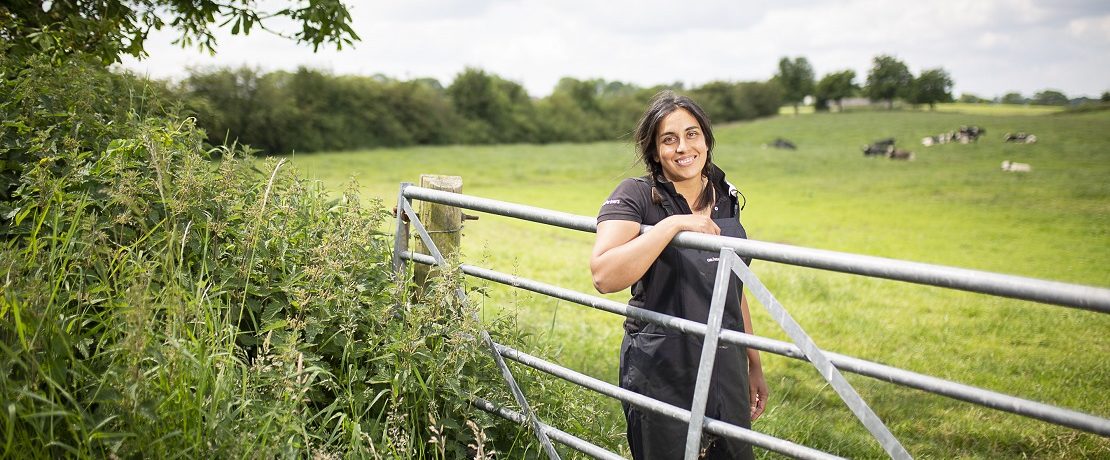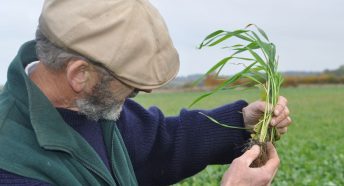Rural roles: A farm vet’s life
Claire Whittle swapped cocktail waitressing in the city for veterinary school and a career as a farm vet working across the North West – and has never looked back. We caught up with her on the farm to find out more!
How did you end up being a vet?
I grew up in Liverpool, and I always loved animals and the outdoors: being on my grandad’s allotment or going on countryside walks at weekends with my dad. But when I was 18, I didn’t really know what I wanted to do with my life.
For a while, I worked in bars, restaurants and hospitality, and loved that city life. In my early 20s, I started thinking about perhaps becoming a veterinary nurse or a vet. I went back to college and did an access course in medical science before getting a place at the University of Liverpool vet school, aged 24.
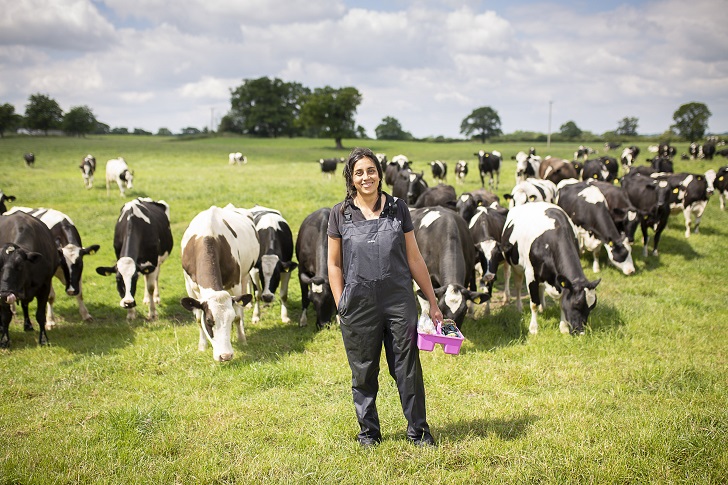
What drew you to farm work?
I had absolutely no intention of going into large-animal vetting. Then, in my first year at vet school, I went to work on a dairy farm. On my first day I was terrified – suddenly I was surrounded by young heifers, all licking me. But I fell in love with cows! The farm became my happy place, and I went back to do a summer apprenticeship. Three Saturdays a month, I’d be milking at night, and the fourth, I’d be DJing in the city to earn some extra money.
Since graduating in 2014 I’ve worked with farms. I always thought that if you wanted to be a farm vet you had to come from a farming background. But that’s not the case, if you’re willing to put in the effort. I ask questions all the time: farmers are great mines of information! And when they find out you’re from a city, they think it’s great that you’ve come and done it.
What appeals about cows?
They’ve all got such different personalities. And the average dairy cow performs at a similar level, metabolically, to Olympians. You wouldn’t believe how much milk they produce. Plus, they’re just nice creatures to be around! I think we can all learn a lot from cows.
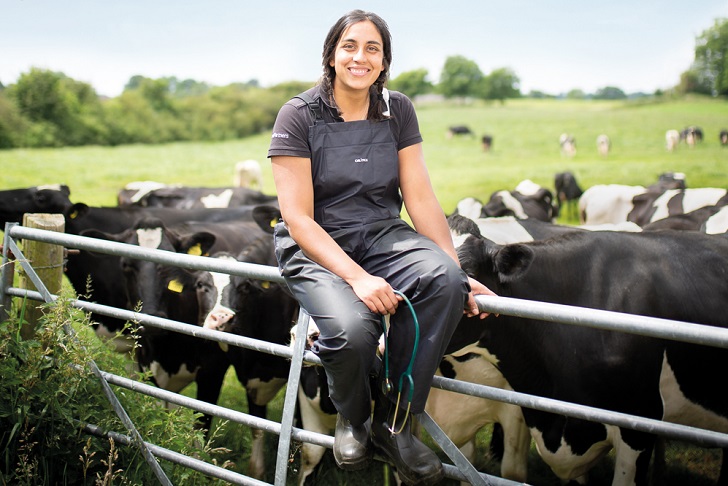
Was it a big change from your old life?
Actually, the skills I gained from bar work were incredible. If you’ve been a cocktail waitress in a Liverpool bar on a Saturday night, you learn how to deal with a vast array of people, solve problems on the spot, and cope with people occasionally shouting at you!
Growing up, I was painfully shy, and I probably wouldn’t be doing this job now if it wasn’t for my earlier experiences. Being a vet is 90% good communication. If you can’t talk to farmers and build their trust, you’re never going to get to the bottom of a problem.
What do you enjoy most about being a vet?
I still get a high from calving a cow! Individual cases where you’ve helped a difficult birth, or saved a life, are very satisfying; as is managing herd health. But one of the best things about farm vetting is the relationships we build. We make routine visits to clients’ farms, week in, week out, so you really get to know these families and they open their arms to you. There’s a really close-knit sense of community.
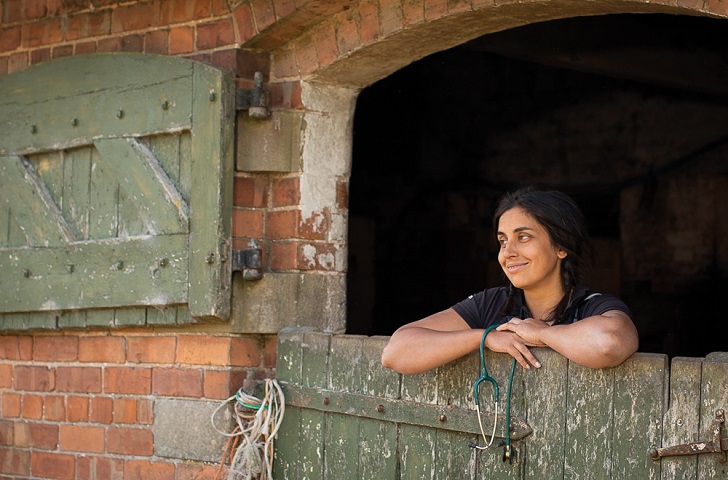
What are the toughest moments?
It’s not easy when it’s dark, and the rain’s coming down sideways, and you’re trying to stitch an animal up but you can’t feel your fingers any more. But one of the hardest things to witness is TB in cattle. If a farm has a TB case and gets shut down, it’s devastating. Some farms are really badly affected. There are a lot of mental health challenges in farming. And as a farm vet, you go through their good times and their tough times with them.
Can you tell us about your extracurricular activities?
I’ve always been interested in the environment, and we’ve started hearing a lot about farming’s negative impacts. For me, that didn’t tally with what I was seeing on farms. I started looking into how different people were doing things, inspired by clients in Shropshire who graze their beef herd on peat soils and wetlands, and who told me all about the countryside stewardship scheme they were on.
With the support of my practice, LLM Farm Vets, I was able to do a postgraduate certificate in conservation medicine. This year I’m doing a Nuffield scholarship to look at the impact of regenerative agriculture on the health and welfare of livestock. I’ve also got really interested in dung beetles!
Interesting! Why dung beetles?
They are vital ecosystem engineers. You get more grazing grass if dung beetles get rid of poo for you; you get fewer flies, as they reduce fly egg numbers; they provide food for bats; and they put organic matter back into the soil by burying dung. But the anti-parasitic drugs we use can be detrimental to dung beetles.
At vet school, we weren’t taught about the environmental impacts of the drugs we use. Now I’m trying to promote more sustainable veterinary solutions. We have to think about farms as whole ecosystems; from the people that work there, down to the smallest beetle.
What else do you enjoy?
I’m fascinated by traditional rural crafts. Just before lockdown last year, I booked myself on a two-day hedgelaying course, and I’ve really got into it. I practised my skills on a colleague’s garden hedge. Soon, I got a call from a farmer, who’d heard I was interested, asking if I wanted to take a look at his hedgerows. During lockdown, we laid about 30 metres of hedge by hand. I’ve now got my own collection of billhooks, which I bought on eBay!
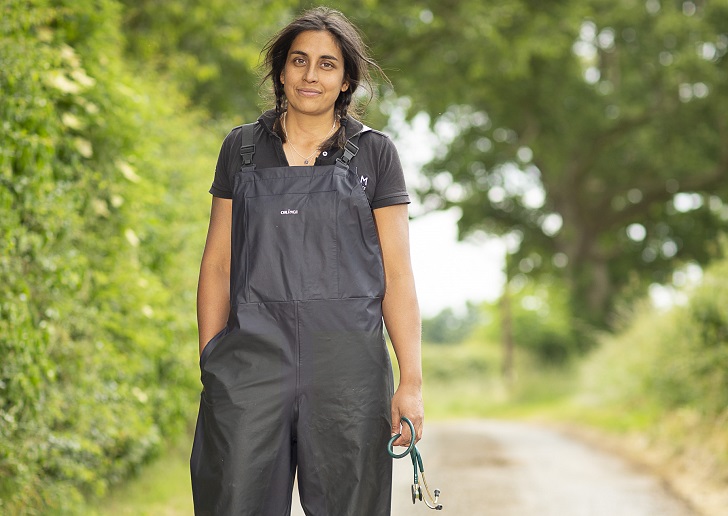
I’ve also been volunteering on hedgerow bird surveys. Even on commercial dairy farms that aren’t necessarily using organic or pasture-fed methods, you still find a huge variety of birdlife and biodiversity.
Do you think the general public understands farming?
I think there’s a lot of negative press about livestock farmers: that they don’t care for their animals and they only raise them to kill them. That’s not how it works at all.
The reason I have a job is because farmers care about their animals’ health and welfare. They know instinctively if something’s wrong with them. They work incredibly hard, 365 days a year. So during the pandemic, it’s been lovely to see rainbows with ‘Thank you NHS, thank you farmers’ on them.
Claire is part of the team behind Dung Beetles for Farmers and you can follow her veterinary and conservation exploits on twitter @DrDowhittle
This article was originally published in CPRE’s award-winning magazine, Countryside Voices. You’ll have Countryside Voices sent to your door three times a year, as well as access to other benefits including discounts on attraction visits and countryside kit from major high street stores when you join as a CPRE member. Join us now.
